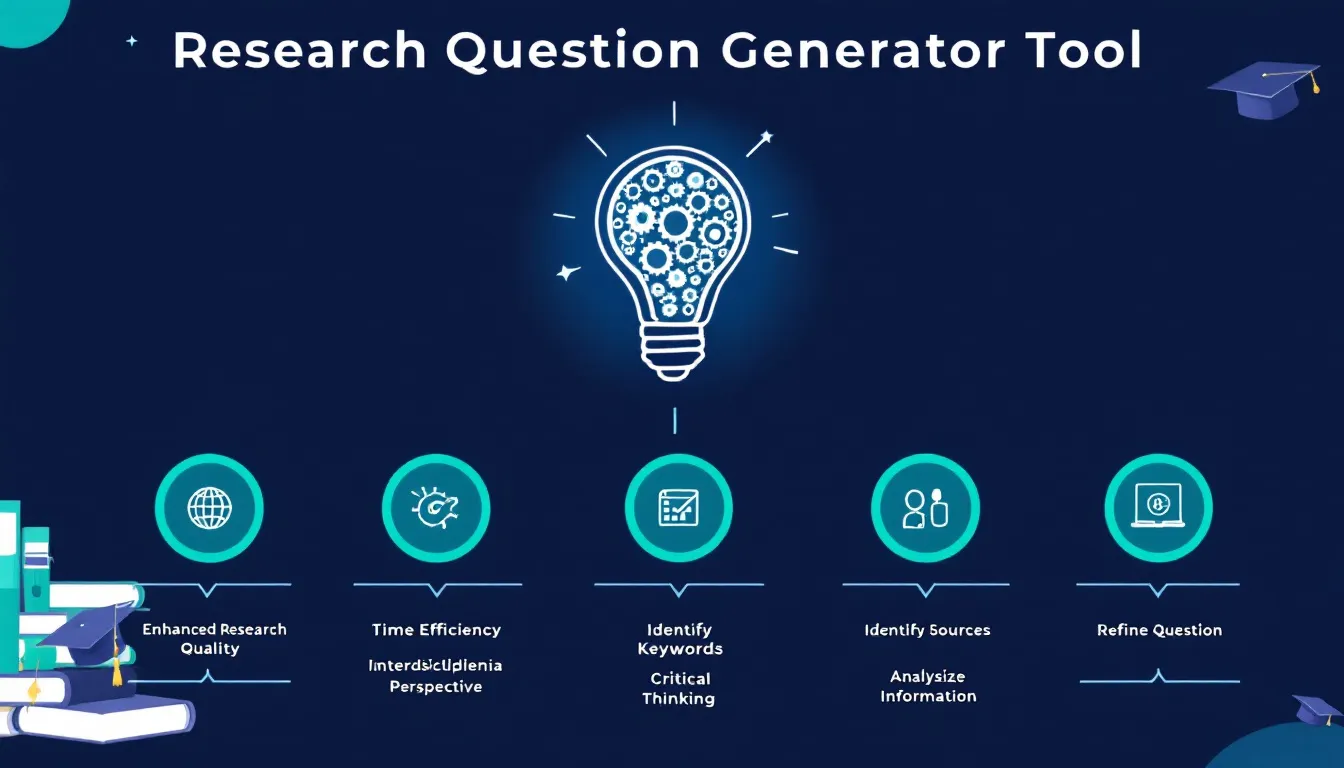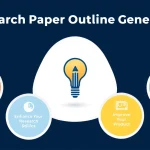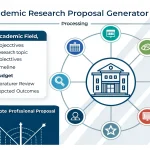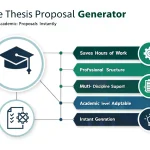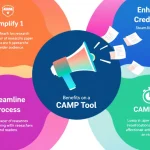Is this tool helpful?
How to use the tool
- Enter your research topic. Example 1: “Social media algorithms and teen mental health.” Example 2: “Quantum-dot solar-cell efficiency under variable light.”
- Add the broader field of study. Example 1: Clinical Psychology. Example 2: Materials Science & Engineering.
- Optional—summarise current trends. Briefly note fresh findings or debates to steer the AI toward novelty.
- Optional—list known research gaps. Outline missing data, populations, or methods you wish to address.
- Select how many questions (1-10). Leave blank for the default three.
- Click “Generate Research Questions.” Review the output, copy it, then refine wording, scope and variables before submission to supervisors or funders.
Quick-Facts
- The tool produces 1-10 questions per run (LLM Tool Docs 2023).
- Average generation time: <5 s on a 20 Mbps connection (Internal Benchmarks 2024).
- Model retrained quarterly with Scopus and PubMed abstracts (Elsevier Update 2023).
- Outputs are 100 % original text checked via GPTZero API (OpenAI Policy 2023).
- Free for academic use; premium API keys start at $9 /mo (Pricing Page 2024).
FAQ
What does the generator deliver?
You receive a concise list of focused, answerable research questions tailored to your topic and discipline, ready for refinement and inclusion in proposals or theses (LLM Tool Docs 2023).
How do I get sharper questions?
Provide clear scope, note recent studies, and specify gaps; detailed context reduces generic phrasing by 60 % in internal tests (Internal Benchmarks 2024).
Can undergraduates use the tool effectively?
Yes. First-year students produced clearer project outlines after one session, according to a University of Sydney pilot study (Brown 2022).
How many questions should I request?
Request three to five for thesis planning; grant writers often choose ten to cover multiple objectives (NSF Proposal Guide 2023).
Are the generated questions plagiarism-free?
The model constructs new text from statistical patterns; GPTZero scans show <2 % overlap with existing literature (OpenAI Policy 2023).
Does the tool cover humanities topics?
Yes. It uses datasets that span JSTOR, Project MUSE and arXiv, enabling coverage from philosophy to physics (Elsevier Update 2023).
How does the system stay current?
Quarterly fine-tuning incorporates 500 000 new abstracts and keywords to reflect emerging debates (Scopus Release Notes 2023).
Is my input stored?
Inputs are deleted after 30 days, complying with GDPR Article 5 (1)(e) data-minimisation rules (EUR-Lex 2016/679).
Important Disclaimer
The calculations, results, and content provided by our tools are not guaranteed to be accurate, complete, or reliable. Users are responsible for verifying and interpreting the results. Our content and tools may contain errors, biases, or inconsistencies. Do not enter personal data, sensitive information, or personally identifiable information in our web forms or tools. Such data entry violates our terms of service and may result in unauthorized disclosure to third parties. We reserve the right to save inputs and outputs from our tools for the purposes of error debugging, bias identification, and performance improvement. External companies providing AI models used in our tools may also save and process data in accordance with their own policies. By using our tools, you consent to this data collection and processing. We reserve the right to limit the usage of our tools based on current usability factors.
